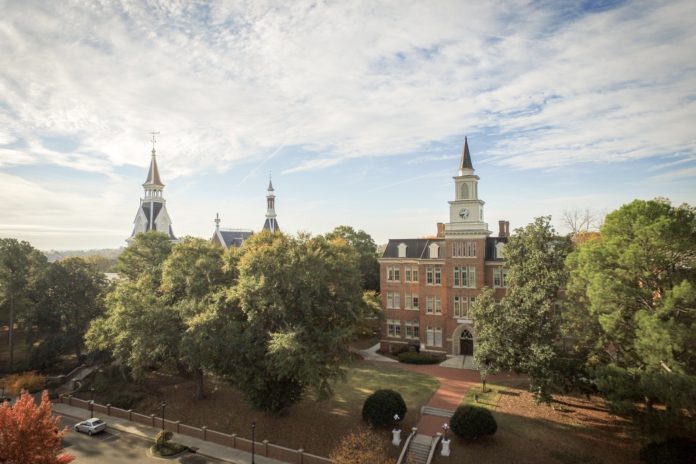MACON – A symposium titled “Religion and Violence” will be the first event in a new series called “Intersections,” sponsored on Mercer's Macon campus by the Office of the University Minister and Dean of Chapel and the Center for Theology and Public Life. The goal of the series is to generate understanding and conversation around the intersections of religion and important contemporary issues.
The symposium will take place in the Medical School Auditorium on Feb. 10 at 7 p.m. A panel discussion will provide an opportunity to explore the connection between religions that promote peace and the violence that is often associated with those religions.
The panel will be composed of Dr. Eimad Houry, professor of political science, Dr. Scott Nash, Columbus Roberts Professor of New Testament, and Rabbi Larry Schlesinger of Temple Beth Israel in Macon. The panelists will provide their thoughts on the topic from an interfaith perspective of Islam, Christianity and Judaism.
“There are two complementary aims to this symposium. The first is to address the question of why religion, with its many voices calling for peace, is nonetheless used to promote horrific violence against its own people and perceived enemies around the world,” said University Minister and Dean of Chapel Dr. Craig McMahan. “The second aim is to discuss ways that religion could be, and is being, a catalyst for peace and reconciliation.”
Distinguished University Professor of Christian Ethics and Director of the Center for Theology and Public Life Dr. David Gushee will conclude the symposium by offering examples of believers from various religious backgrounds who work together for peace. Dr. Gushee will also give away a signed copy of his new book, “Evangelical Peacemakers,” to the first 100 students in attendance.
“This question of the intersection of religion and violence is extraordinarily important. Many broad claims are made by those for and against 'religion' that do not stand up to serious scrutiny. I am hopeful that this symposium will shed considerable light on the complex issue of how religion relates to both violence and peacemaking,” said Dr. Gushee.










